Vichy Mineral 89 Review
Wondering if this popular hyaluronic acid is sensitive skin friendly? Read on for my Vichy Mineral 89 review.
When you make a purchase through one of the links included in this article, I may earn a small commission. Learn more here›
Product Profile – Vichy Mineral 89 Review
This Vichy Mineral 89 review is long overdue as the serum has been around for several years. But, it has somewhat of a controversial reputation. Many people believe that the $30 hyaluronate serum (HA) is overhyped and overpriced. Though, I do agree that that serum is a bit on the expensive side. Its accessibility (available at Target, Walmart, and Ulta) and gentle formulation make Vichy Mineral 89 one of my top picks for those with dehydrated, or dry sensitive skin.
As a person who values minimalism in her skincare products. I appreciate Mineral 89’s pared-down formulation. Too often skincare products are formulated with 20 or more ingredients. Which can make identifying ingredients that are causing a reaction difficult. My philosophy is, less is always more when it comes to skincare. Especially for those with sensitive skin. Being able to easily identify what’s in my products, is a top priority when choosing what to add to my routine. With its fairly short ingredient list, Vichy makes it easy with Mineral 89.
Product Claims
According to their website Vichy Mineral 89 is “formulated with pure hyaluronic acid and mineral-rich Vichy volcanic water to strengthen & repair your skin barrier”. In my opinion, the claims about volcanic water are a bit overdrawn. There are a handful of studies that seem to highlight the barrier-repairing benefits of volcanic water. But, most of those studies are funded and conducted by L’Oréal which owns Vichy, so there’s that.
Aveeno also states that the product has been accepted by the National Eczema Association. The acceptance by the NEA simply means that the product has been reviewed by them to determine that it does not contain ingredients or contents that are known to be unsuitable for use by people with eczema or sensitive skin conditions. The keyword there is known. I have big issues with proclamations like this. Those of us with eczema and sensitive skin know that triggers can be caused by just about anything, even water, so this doesn’t mean much to me.


PRODUCT SNAPSHOT
BEST FOR: Dehydrated, sensitive skin types.
SENSITIVE SKIN FRIENDLY? Yes. But it can cause further irritation for those with active inflammation.
POTENTIAL TRIGGERS: Methyl Gluceth-20, Sodium Hyaluronate, Phenoxyethanol, Caprylyl Glycol, Citric Acid.
FRAGRANCE-FREE: Yes. But it does have a slight chemical smell.
ALLERGENS: Those with corn, coconut, petroleum or citrus allergies should proceed with caution and patch test before use.
PRICE: $30
My Experience – Vichy Mineral 89 Review
Six years ago, when my skin was at its most inflamed. I mainly used products that were oil-based to soothe and calm the inflammation. Although these products helped immensely in my healing process. Over time, my skin appeared dull and lacked elasticity. I couldn’t figure out why my skin looked so lackluster since I was slathering all kinds of oils on my face every
Turns out, I was experiencing accelerated Transepidermal Water Loss (TEWL). Which basically meant that my skin was severely dehydrated. The main culprits of my TEWL were environmental conditions and using skincare that lacked water.
Skin Needs Water
Since moving to an arid climate, I had to work harder at keeping my skin moisturized. This wasn’t such an easy task as I had a hard time finding skincare products that didn’t irritate my skin. My dreams of soft, moisturized skin were looking bleak. But instead of throwing in the towel, I began searching for water-based products that were gentle and hydrating for my very finicky skin.
After some research, I decided I was going to start with a good-quality hyaluronate acid. There were and continue to be a ton on the market. But many of them are formulated with additives, fillers, and other ingredients that can be irritating to sensitive skin.
When it was all said and done, I tried 8 different hyaluronate acid (HA) serums. My skin was able to tolerate two. One of which was Vichy’s Mineral 89 booster.
The Results
After just a few days of using this serum, my skin felt and looked different. The texture, elasticity, and overall softness of my skin had improved significantly.
The results I got from introducing HA into my skincare routine encouraged me to rethink how I approached skincare. It prompted me to focus more on hydration methods and less on treatments for acne, wrinkles, and scarring. As a result, properly hydrating reduced my acne, softened my forehead wrinkles, and smoothed out some of my acne scars. Making it less necessary to use additional products.
Nowadays, my skincare routine consists mostly of lightweight, water-based moisturizers, serums, and treatments that support the hydration of my skin. This simple shift has made a bigger difference in my skin than any acne medication or anti-aging product combined.
Hyaluronic Acid and Sensitive Skin
Now that I’ve told you how great HA is, I’m also gonna tell you how terrible it can be. I know, I know, building you up, just to tear you down! I like to keep things extra real around these parts! And the truth is hyaluronic acid and its derivatives, especially sodium hyaluronate, can cause serious irritation and inflame already irritated skin. This is because sodium hyaluronate penetrates deeper into the skin than regular hyaluronic acid, which stays on the surface. Thus potentially causing angry, aggravated skin.
I do not use hyaluronic acid or any of its derivatives when my skin is actively inflamed. Meaning, if there is any stinging, burning, itching, swelling etc. I don’t use it. I find that it makes things worse and slows down the healing process.
However, when my skin is calm, I can tolerate hyaluronate acid and sodium hyaluronate with no problem. What I have learned is that it’s all about proper application. Hyaluronate acid and its derivatives draw in water. So, if there is not enough water on your face, in the products that you’re layering on top of the HA, or in your physical environment. The HA will pull water out of your skin, instead of into your skin, causing irritation.
Knowing when to use it and how to use it are the most important factors when using HA. Those with sensitive skin don’t have to avoid using it. The key is proper application and only applying it when your skin is feeling its healthiest.
You can read more about hyaluronic acid here and here.
How I Use It – Vichy Mineral 89 Review
There are two important things to remember about applying hyaluronic acid. One, HA binds to water, so it needs water to do its job. And two, you need to apply an occlusive on top of it to seal in its water-binding effects.
Do not, I repeat. Do not apply any hyaluronic acid serums to dry skin. This can cause serious irritation and is a great way to damage your skin barrier!
Some people say apply it to damp skin. I would say make sure your skin is completely saturated with water. Since I don’t towel dry my face, I go from cleansing, to immediately applying the serum to my wet skin. Often times I will splash additional water on my face to make sure it’s nice and moist. The water helps activate the HA helping boost the moisturizing benefits.
I have combination skin that leans on the dry side. So, I like to top this serum with squalane, then marula oil. The squalane moisturizes and softens, while the marula oil acts as a hydrator and occlusive. This process will leave my skin feeling comfortable all day.
Although Vichy claims that this serum hydrates like a lotion. For me, it is not moisturizing enough to be used alone. However, if you are extremely oily, or you want to lighten up your skincare routine for hot days, you may be able to get away with using this and a lightweight moisturizer. Just be sure your moisturizer includes an occlusive.
Vichy Mineral 89 Ingredients
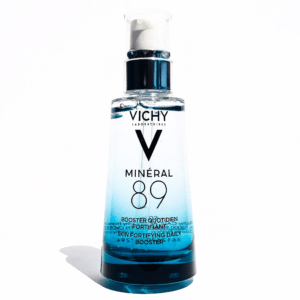
Aqua/Water/Eau, PEG/PPG/Polybutylene Glycol-8/5/3 Glycerin, Glycerin, Butylene Glycol, Methyl Gluceth-20, Carbomer, Sodium Hyaluronate, Phenoxyethanol, Caprylyl Glycol, Citric Acid, Biosaccharide Gum-1.
Water – Good ol’ plain H2O
PEG/PPG/Polybutylene Glycol-8/5/3 Glycerin – A water-soluble, synthetic ingredient derived from glycerine. It’s a humectant, which helps attract water to the skin. It can be derived from petroleum, corn, palm, rapeseed oil, or animal fats.
Glycerin – A sugar alcohol that can be derived from petroleum, corn, palm, rapeseed oil, or animal fats.
Butylene Glycol – An organic alcohol, often used as a humectant. Derived from corn, petroleum, or sugarcane.
Methyl Gluceth-20 – A moisturizing emollient used as a humectant and skin conditioner. It can be derived from corn, so those with corn allergies should proceed with caution.
Carbomer – Made from acrylic acid, it is primary function is to turn liquids in to gel. Can cause contact dermatitis in those allergic to acrylic.
Sodium Hyaluronate – A salt form of hyaluronate acid, making it more stable and less likely to oxidize in products. Can exacerbate inflamed skin and cause further irritation if applied improperly.
Phenoxyethanol – A preservative made from petroleum. If you are allergic to petroleum or mineral oil, you may have sensitivity to Phenoxyethanol.
Caprylyl Glycol – An alcohol derived from palm or coconut oil.
Citric Acid – Derived from citrus fruits. Added to formulations to balance pH. May cause further irritation in those experiencing active inflammation.
Biosaccharide Gum-1 – A fermented carbohydrate made from sorbitol, a sugar alcohol. Sorbitol is derived from potato starch.
Smell, Texture + Consistency
- It’s fragrance-free, but not free of fragrance. Meaning, although products say they are fragrance-free. Many times they still have a smell. This one has a slight chemical smell. But, as a person who is very sensitive to smells, I hardly even notice it.
- The texture is a lightweight gel, that rubs in seamlessly. There is no piling or buildup under makeup or sunscreen.
- Vichy refers to this product as a skin booster. Which they say has the consistency of a serum and hydrates like a lotion. It certainly feels like a traditional serum but doesn’t hydrate as a traditional lotion would.
Similar Alternatives
If the $30 price point is just too steep, you can try the trial-size version here for $19.99 or click the link below. However, if you’re not ready to take the plunge or if you have a known reaction to one or more of the ingredients in this formulation. I highly recommend Traders Joes Hyaluronic Moisture Boost Serum. It’s very similar in performance. More than half the cost. And the best part is that there are only 5 ingredients! It’s not an exact dupe for Vichy Mineral 89, but it’s a great alternative if you’re looking for options.
Is It Sensitive Skin Friendly?
- Yes with caveats. I would consider this serum sensitive skin-friendly based on the number of ingredients and its formulation. Is it perfect, no. I seldom find products that are. But it’s really good.
- My skin can be reactive to citric acid, corn, and coconut derivatives. This formulation has all three but gives me no issues if I’m not actively inflamed. If you’re sensitive, and not experiencing any inflammation, then you should definitely give this a try.
- If you’re sensitive and you know you’re reactive to products with corn, petroleum, coconut, or citrus derivatives, you may want to skip this one.
- If you’re unsure if you’re sensitive to these ingredients, patch test, but not on your face. Patch testing can minimize the risk of your skin having a full-blown breakdown and is key to keeping your skin barrier healthy.
Final Thoughts – Vichy Mineral 89 Review
Who They Say It’s For?
- Irritated, dry, sensitive skin.
Who Is It Really For?
- Those with dry or dehydrated sensitive skin, not experiencing active inflammation.
Who Is It Not For?
- Those with sensitive or reactive skin that are experiencing active inflammation, irritation, cracked or broken skin.
What I Like About It
- It has a short ingredient list.
- It’s hydrating and lightly moisturizing and leaves my skin feeling moist and plump.
- It’s also accessible and can be found at most big box and online retailers.
What I Don’t Like About It
- The formulation could just be simpler for a hyaluronic acid. The addition of caprylyl glycol and citric acid is unnecessary for this type of product.
All in all, I would say give Vichy’s Mineral 89 a try if you are in the market for a hyaluronic serum. It’s a solid choice for those with sensitive skin.
This Vichy Mineral 89 review is based on my experience as a person with highly reactive, sensitive skin. However, what works for me, may not work for you. When trying out new skincare, I encourage you to always patch-test like it’s your job. Can it be annoying? Sure. But if you’re skin is anything like mine. It can save you from itchy, rashy, angry mess.
What’s your Vichy Mineral 89 review? Did you like it? Are there any other sensitive skin-friendly serums you’ve tried that you love? Let me know in the comments.
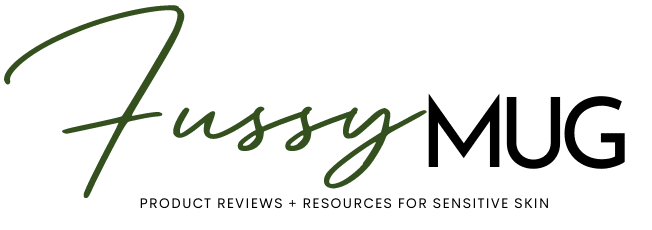
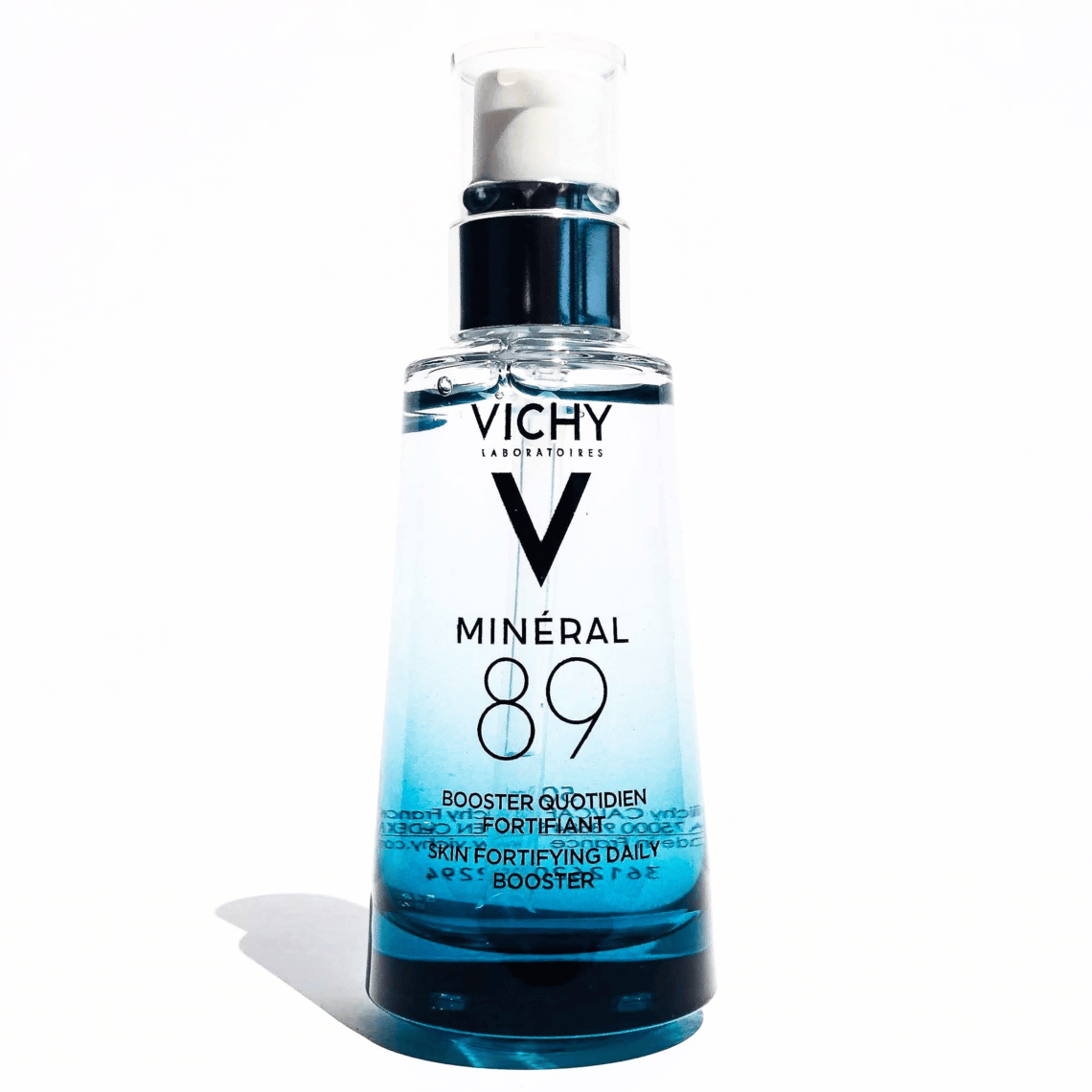
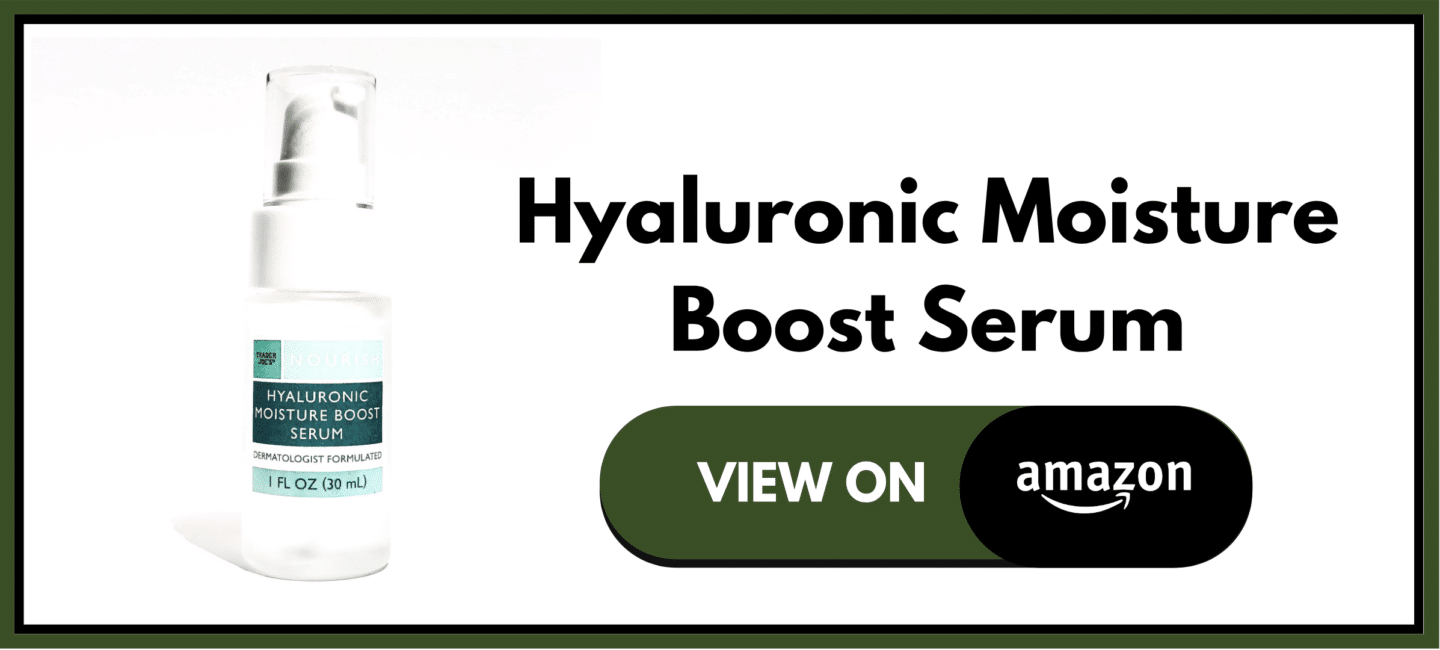
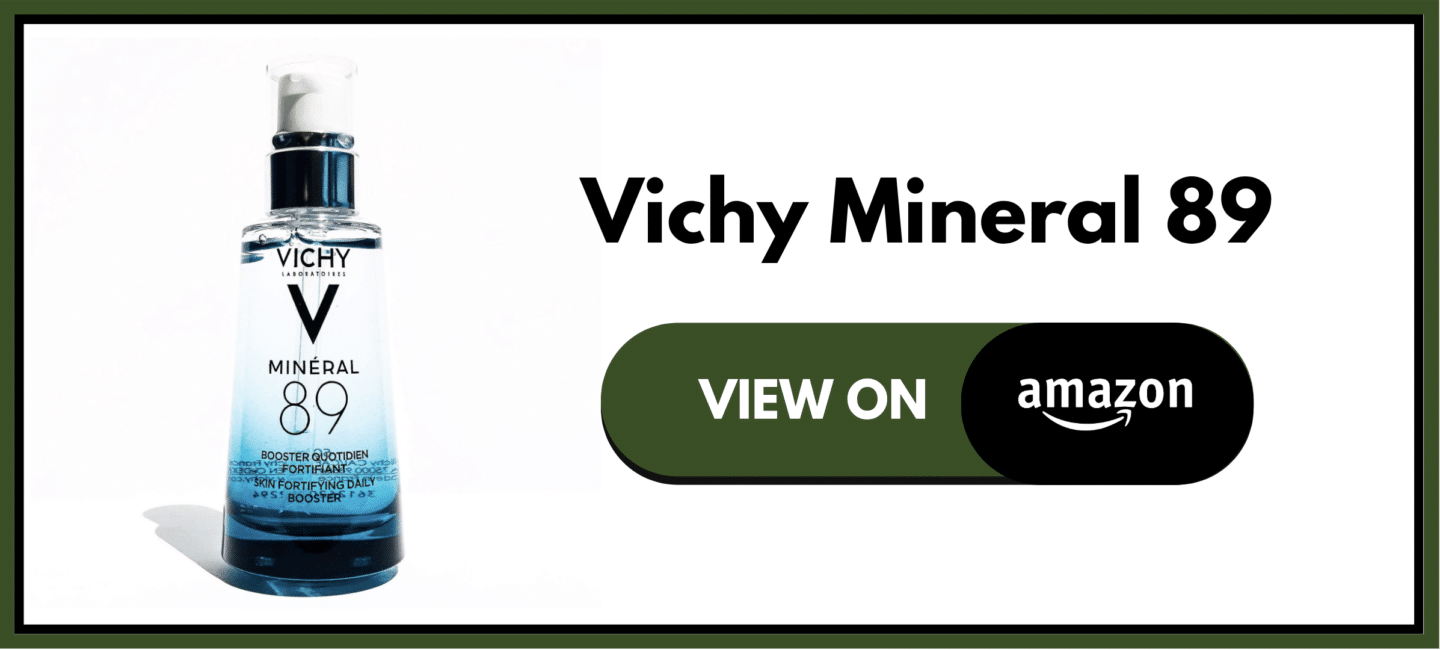
No Comments